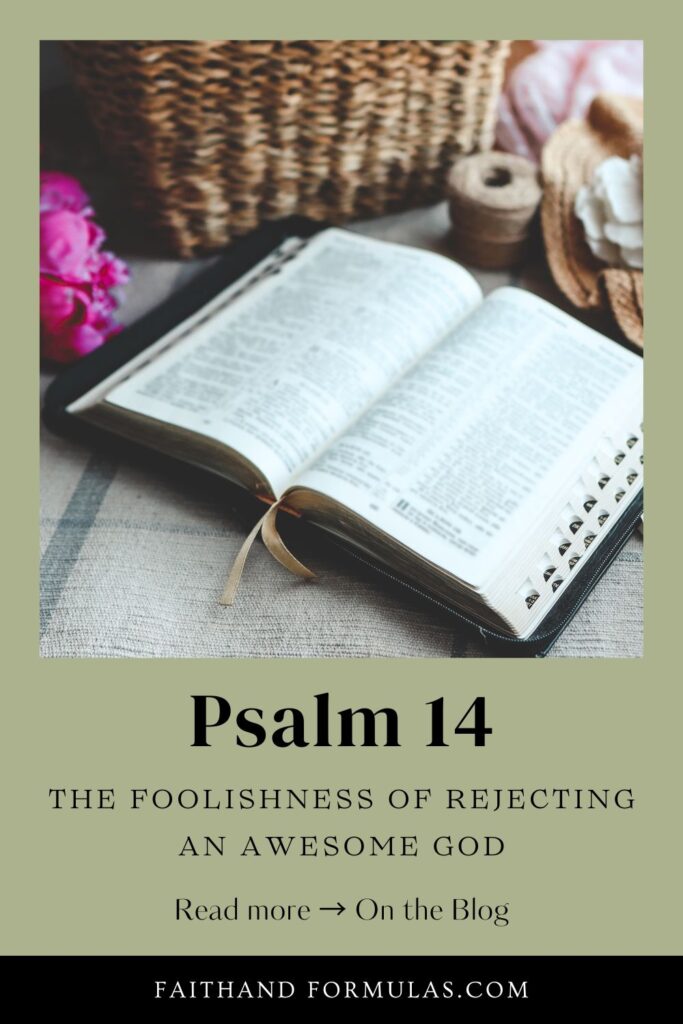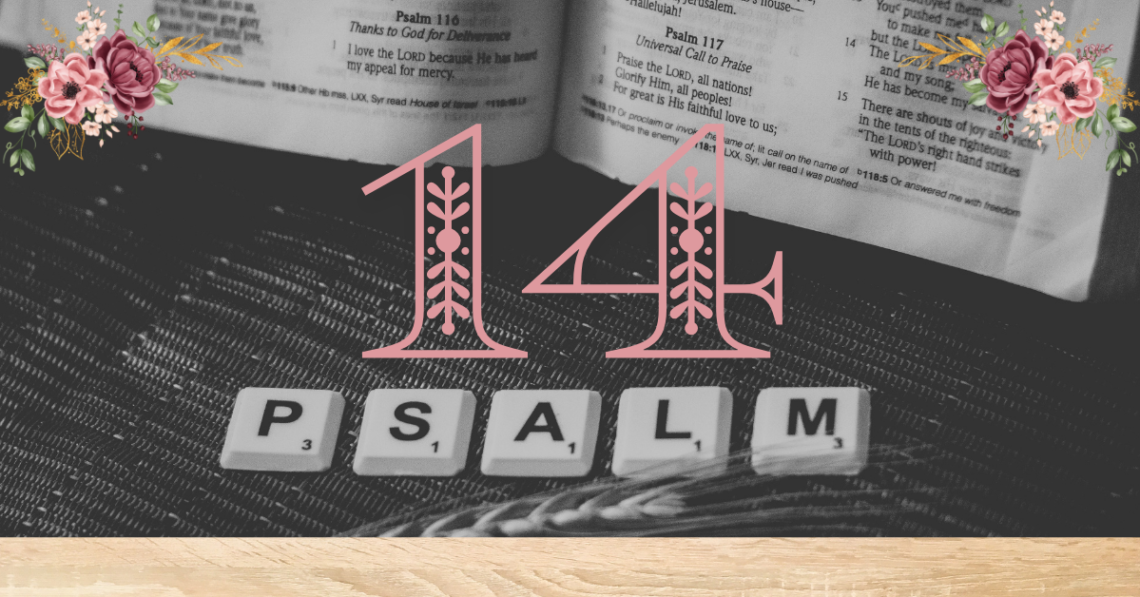In a world where many deny God’s existence or live as if He doesn’t matter, Psalm 14 calls out the folly of rejecting the Creator. It offers a sobering reflection on the state of humanity and reminds us of the importance of seeking God, not for our own righteousness but for His glory and truth.
Background of Psalm 14
Psalm 14 is attributed to David and addresses the foolishness of denying God and living without Him. It reflects on the corrupt nature of humanity, with a particular focus on the godlessness of those who claim that there is no God. The psalm contrasts the wicked with the righteous and emphasizes that God is watching over His people, even when it seems like evil prevails.
What Does Psalm 14 Mean?
Psalm 14 is often described as a reflection on human depravity. The psalm can be broken into four sections:
- Verses 1–3: A description of the wicked who deny God’s existence and live in corruption.
- Verse 4: A question about whether those who reject God will ever turn from their evil ways.
- Verses 5–6: God will bring justice and protect His people.
- Verse 7: A longing for salvation to come from Zion, where God will restore His people.
Verse Mapping Psalm 14:1
“The fool says in his heart, ‘There is no God.’ They are corrupt; they do vile deeds; there is no one who does good.” (CSB)
1. Word Study
- Fool – In Hebrew, “nabal,” meaning morally senseless, acting without knowledge of God.
- Corrupt – Ruined, decayed, morally wrong.
- Vile deeds – Wicked actions or things that are morally reprehensible.
- No one who does good – A reflection of humanity’s failure to live up to God’s standards.
2. Cross-References
- Romans 3:10 – “There is no one righteous, not even one.”
- Psalm 53:1 – This verse mirrors Psalm 14:1, stating that the fool denies God.
3. Paraphrase
The person who denies God is morally senseless and lives in corruption, doing wicked things, with no one living in righteousness.
4. Application
Rejecting God leads to moral decay. Acknowledging God is the first step toward true goodness and righteousness.
How Can We Apply Psalm 14 Today?
Psalm 14 speaks directly to the issue of atheism and the rejection of God’s truth, but it also has broader implications for how we live our lives.
1. Acknowledge God’s Existence
Denying God is not just an intellectual decision but a moral one. Recognizing God’s existence is the first step toward wisdom and righteousness.
2. Examine Your Heart
David says that the fool says in his heart there is no God. It’s not just an external proclamation but an internal disposition. Reflect on your own attitudes toward God—are you living in a way that acknowledges Him in all things?
3. Live in Contrast to the Wicked
Psalm 14 calls attention to the contrast between the wicked and the righteous. As believers, we are called to live differently—living lives of integrity, honesty, and truth that reflect God’s goodness.
4. Trust in God’s Justice
Even when it seems like the wicked prosper, we can trust that God sees all things and will bring justice in His time. He will protect His people.
Reflection Questions
- Have you ever struggled with doubts about God’s existence or His goodness? How did you work through those doubts?
- In what areas of your life can you live more fully in acknowledgment of God’s presence?
- How can you show the love and righteousness of God to those who are living in rebellion or denial of Him?
- What does it mean for you to trust in God’s justice, even when it seems like evil is winning?
A Closing Prayer
Lord, I confess that I often forget the depths of Your goodness and power. I acknowledge You as my Creator and Savior, and I pray that You would help me live a life that reflects Your righteousness. May I trust in Your justice and wait with hope for the restoration that will come from You. Amen.
Final Thoughts
Psalm 14 challenges us to see the consequences of rejecting God and living in moral corruption. Yet it also offers hope that God is watching over His people and will bring justice. We are called to live in contrast to the foolishness of the world, trusting that God will ultimately restore and save His people.
Share the Wisdom
If you know someone struggling with doubts or who is living in rejection of God, share Psalm 14 as a reminder of the importance of acknowledging the Creator and living according to His truth.






